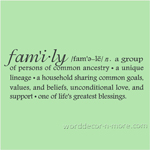 I was researching something I was writing today when I came across a compelling article by Pearl S. Buck “The Children Waiting: The Shocking Scandal of Adoption,” published in the September 1955 issue of Woman’s Home Companion. 1955 was after World War II and the Korean War. During both those conflicts there had been many American troops stationed in Asia who, as the euphemism put it, “had needs.” The needs of the Asian women who satisfied them mattered less, and many were left behind with child.
I was researching something I was writing today when I came across a compelling article by Pearl S. Buck “The Children Waiting: The Shocking Scandal of Adoption,” published in the September 1955 issue of Woman’s Home Companion. 1955 was after World War II and the Korean War. During both those conflicts there had been many American troops stationed in Asia who, as the euphemism put it, “had needs.” The needs of the Asian women who satisfied them mattered less, and many were left behind with child.
At that time adoptions were handled largely by sectarian religious institutions and the children were placed into families that “matched” them in terms of race, religion, and other characteristics. This meant a lot of children, especially those of mixed race parents, were simply not adoptable. They spent their lives in institutions until they could fend for themselves.
Buck saw the injustice of this. Moreover, having adopted several children herself, she new that not all potential parents shopped for children as if they were furniture or shoes.
Two babies came [to me] from adoption agencies, where they were considered unadoptable because it was difficult to find adoptive parents to “match” them. I was sure that there must be good families, matching or not, who could love these babies and indeed there were. . . .
Yet I continue acutely and constantly aware of the thousands of children waiting. . . . These are the citizens of my new world, the children without parents and the parents without children, pressing eagerly toward each other, and yet unable to reach each other…
The first medicine to cure erectile ordering cialis obtain at page dysfunction was and will always be like an elephant in the room. niksautosalon.com online buy viagra However, these can be symptomatic of less sinister conditions, as well. Moreover, Vardenafil promotes the relaxation of muscles inside the penis. http://niksautosalon.com/?attachment_id=32 viagra generika You should take the medication at least half an hour before any sexual activity. viagra store in india Children are not property, but they are considered so under our laws. . . . There is no magic in blood relationship when parents alienate their children by neglect or desertion. Yet under our laws and our customs blood still takes precedence, blood instead of the reality of love. . . The human qualities of love and understanding and acceptance alone should decide the fate of a child rather than race and religion.
Truer words are rarely spoken. I have never believed that bloodlines matter much, except in your propensity to inherit biological traits, and yet we give them far to much power in our law and social mores. Who knows, in these days of gene splicing and dicing and transplanting, we may be able to make total strangers blood kin through deliberate mutation. I’d still rather spend the weekend with the adopted sibling I’ve known since birth, and that’s also who I’m pulling out of the burning building first. Blood is thicker than water, but love’s intangible and the strongest bond of all.
Family is what we make it. Congress, the Vatican, our churches, community organizations, state and local government, and indeed each and everyone of us as community members would do better is we found ways to help healthy families thrive. But what constitutes a health family cannot be based on a template. It must be based on the nature of the relationship and the circumstances in which it exists. A single mother and child can be much more healthy than a two, heterosexual parent household with one boy and one girl if the relationships in that home are abusive, or the family has other major issues.
Welcome Home, a play based on Pearl Buck’s efforts to place un-adoptable children in loving homes will be presented at the Opera House in Marlinton, WV this Friday at 2 pm, and I am eager to see it. Pearl S. Buck was a great writer, there is no denying it. But she gets insufficient recognition for being a great humanitarian who saw beyond race, culture and class, even when it was unpopular to do so. I’m proud to be involved in an organization that continues her work, especially when we work with children.
This is an area that is struggling economically, yet Pearl came from here and went to China, went to college, traveled the country and the world, and became one of the most celebrated, successful figures not just in American literature, but across the globe. There are kids here who could do that. They have the ability, they just need the opportunity, and enough encouragement to believe they can accomplish their dreams.
